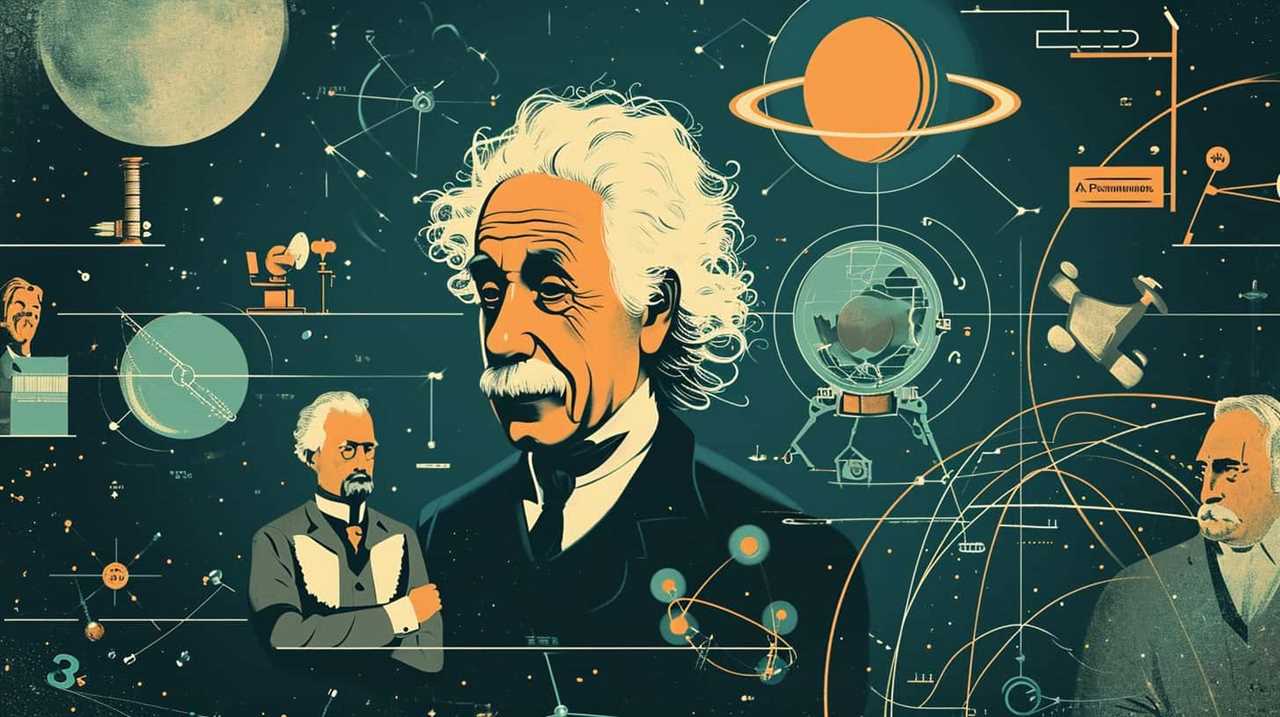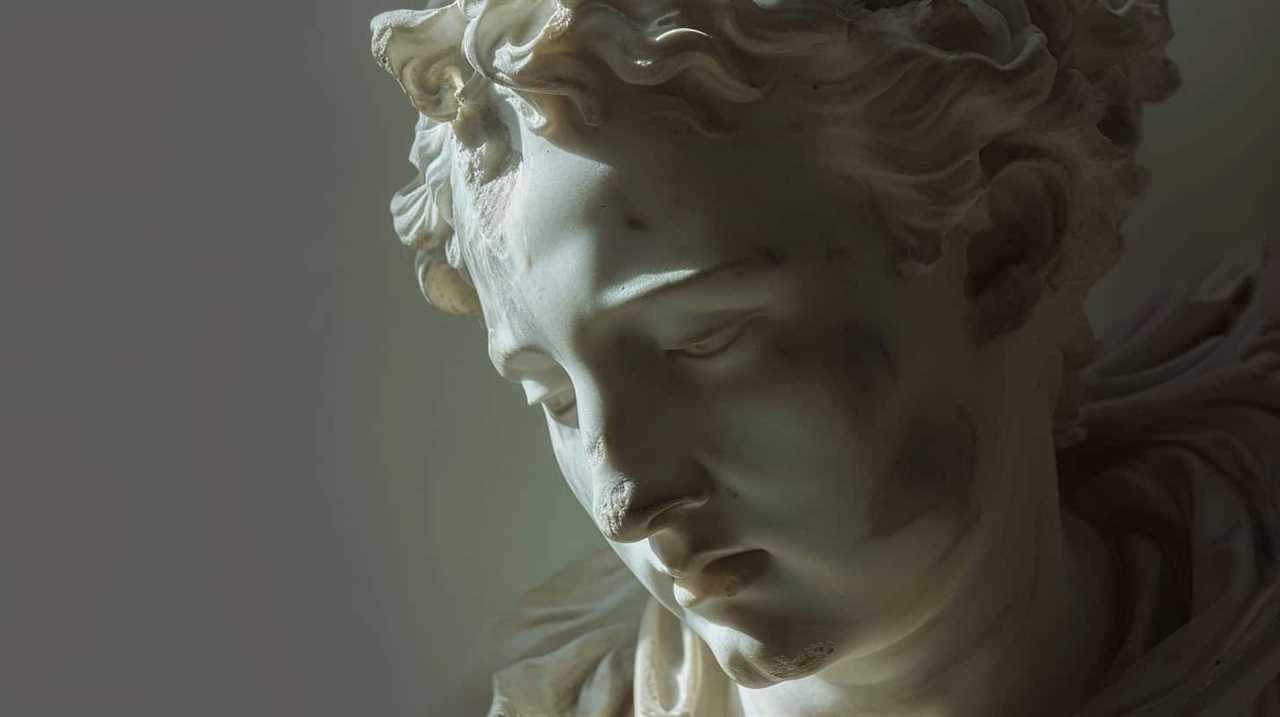In our pursuit to grasp the true meaning of freedom, we take a journey through the thoughts of renowned political scholars. These brilliant minds have guided us towards a more profound comprehension of the concept of liberty.
From Plato’s symbolic cave to Nussbaum’s capabilities approach, each thinker offers a unique perspective on this fundamental concept. With their insights, we can uncover the true nature of freedom and its significance in serving others.
Through the lens of Aristotle, Hobbes, Locke, Rousseau, Arendt, Nozick, Foucault, and Nussbaum, we will delve into the intricate tapestry of political theory.
Join us as we explore the wisdom of these intellectual giants, seeking to unravel the complexities of freedom and its embodiment in our lives.
Key Takeaways
- Classical philosophers such as Plato and Aristotle believed that true freedom is achieved through the cultivation of knowledge, virtue, and political participation.
- Social contract theorists like Hobbes, Locke, and Rousseau emphasized the importance of the social contract in preserving individual liberties and protecting natural rights.
- Modern perspectives on freedom, such as Mill’s harm principle and Marx’s critique of capitalist freedom, highlight the importance of individual well-being and societal harmony.
- The concept of individual liberty has been explored by thinkers like Hobbes, Locke, Berlin, and Arendt, who have different perspectives on the role of government and the absence of coercion in preserving freedom.

Plato’s Perspective on Freedom
Plato believes that the essence of freedom lies in the pursuit of knowledge and the cultivation of virtue. Plato’s perspective on freedom has had a profound influence on political thought and continues to shape our understanding of the concept today. His theory of justice, as outlined in his seminal work ‘The Republic,’ offers valuable insights into the relationship between freedom and the well-being of society.
According to Plato, true freedom can only be achieved through the harmonious integration of knowledge and virtue. He argues that individuals must strive to attain knowledge and cultivate virtuous qualities in order to govern themselves and contribute to the greater good of society. Plato believed that a just society is one in which each individual fulfills their role and contributes to the overall harmony and well-being of the community.
Plato’s theory of justice suggests that freedom isn’t simply the absence of external constraints, but rather the state of living in accordance with reason and virtue. In a just society, individuals are free to pursue their own interests and desires, but always with the understanding that their actions should be guided by knowledge and virtue. This perspective emphasizes the importance of self-discipline and self-governance as essential components of freedom.
Transitioning into Aristotle’s views on political liberty, it’s worth noting that while Aristotle was a student of Plato, he diverged from his teacher’s perspective on freedom. Aristotle’s understanding of freedom focuses more on the idea of political participation and the ability of citizens to have a say in the affairs of the state. This contrast in viewpoints will provide a comprehensive exploration of the essence of freedom as understood by these two influential thinkers.

Aristotle’s Views on Political Liberty
Continuing from our exploration of Plato’s perspective on freedom, let’s now delve into Aristotle’s views on political liberty. Aristotle, a renowned philosopher and student of Plato, had a significant influence on the concept of liberty in Greek philosophy.
Aristotle believed that political liberty was essential for the well-being of society. He argued that true freedom could only be attained within a just and virtuous political system. According to Aristotle, political liberty didn’t mean the absence of rule or authority, but rather the participation of citizens in the decision-making process. He emphasized the importance of a balanced and harmonious society, where individuals had the opportunity to contribute to the common good.
In Aristotle’s view, political liberty wasn’t an individualistic pursuit, but rather a collective responsibility. He believed that citizens should actively engage in the affairs of the state and strive for the betterment of society as a whole. Aristotle’s ideas on political liberty emphasized the importance of civic virtue, education, and the cultivation of moral character.
Aristotle’s influence on the concept of liberty in Greek philosophy can’t be overstated. His ideas laid the foundation for later thinkers, shaping the understanding of political liberty in Western thought. Aristotle’s emphasis on the participation of citizens and the pursuit of the common good continues to resonate today, reminding us of the essential role that political liberty plays in a just and prosperous society.

Hobbes’ Notion of Individual Liberty
Now let’s explore Hobbes’ perspective on individual liberty in the context of the article titled ‘Top Political Thinkers on the Essence of Freedom’. Hobbes’ notion of individual liberty is closely tied to his concept of the social contract and his understanding of the state of nature.
According to Hobbes, the state of nature is a hypothetical scenario in which individuals exist without any form of government or authority. In this state, everyone has the freedom to do whatever they please, but this freedom comes at a cost. Hobbes argues that in the absence of a central authority to enforce rules and maintain order, life in the state of nature is marked by constant fear, uncertainty, and violence. In such a state, individuals’ freedom is limited by the fear of harm from others.
To escape this chaotic state, Hobbes proposes the social contract, an agreement among individuals to form a government and surrender certain rights in exchange for protection and security. In this way, individual liberty is preserved within the bounds of the social contract. While individuals give up some freedoms, such as the right to take revenge, they gain the overall freedom to live in a society that’s governed by laws and protected from the state of nature’s inherent dangers.

Locke’s Theory of Natural Rights
Moving forward in our exploration of political thinkers’ perspectives on the essence of freedom, let’s delve into Locke’s Theory of Natural Rights and its connection to Hobbes’ notion of individual liberty. John Locke, a prominent Enlightenment philosopher, developed a theory that emphasized the importance of natural rights and the social contract.
- Locke’s Social Contract: According to Locke, individuals are born with certain natural rights, including life, liberty, and property. However, in the state of nature, these rights aren’t always protected. To ensure the preservation of these rights, people enter into a social contract. This contract establishes a government that’s responsible for protecting the natural rights of its citizens.
- Locke’s Theory of Property Rights: In addition to natural rights, Locke also explored the concept of property rights. He believed that individuals have the right to acquire and own property through their labor. This theory is known as the labor theory of property. Locke argued that through their labor and mixing it with natural resources, individuals create value and thus have a rightful claim to the property they’ve improved.
- Connection to Hobbes’ Notion of Individual Liberty: While Hobbes and Locke both discussed individual liberty, their perspectives differed. Hobbes believed that individuals should surrender their rights to a strong central authority for the sake of societal order. In contrast, Locke argued that individuals should retain their natural rights and form a government to protect them. Locke’s theory of natural rights and social contract served as a foundation for the development of liberal democratic principles, emphasizing the importance of individual liberty and the role of government in safeguarding it.

Rousseau’s Concept of Social Freedom
Building upon Locke’s Theory of Natural Rights, we further explore Rousseau’s Concept of Social Freedom and its unique perspective on the relationship between individuals and society. Rousseau’s influence on political thought is significant, particularly through his theory of the social contract.
According to Rousseau, individuals are born free, but society imposes restrictions on their freedom. In his book, ‘The Social Contract,’ Rousseau argues that individuals voluntarily surrender some of their natural rights to the community in exchange for protection and the benefits of organized society. This social contract forms the basis of his concept of social freedom.
Rousseau believes that true freedom lies in the collective will of the people. He argues that individuals should participate in decision-making processes to ensure that the general will is upheld. This concept of social freedom places emphasis on the common good rather than individual interests. Rousseau’s ideas challenged the prevailing notion of freedom as mere absence of external constraints, instead emphasizing the importance of collective action and community involvement.
Rousseau’s concept of social freedom has had a lasting impact on political philosophy. His emphasis on the general will and the importance of community participation influenced subsequent thinkers, including Kant and Hegel. Additionally, Rousseau’s social contract theory sparked debates and discussions on the relationship between individuals and society, shaping political thought for centuries to come.
Transitioning to the subsequent section on Mill’s ideas on liberty and utilitarianism, we can compare and contrast Rousseau’s concept of social freedom with Mill’s individualistic approach to freedom.

Mill’s Ideas on Liberty and Utilitarianism
Mill’s conception of freedom is rooted in the principles of liberty and utilitarianism. As an influential political thinker, John Stuart Mill believed that freedom was essential for the well-being and happiness of individuals and society as a whole. Here are three key aspects of Mill’s ideas on liberty and utilitarianism:
- Mill’s harm principle: Mill argued that individuals should be free to act as they wish as long as their actions don’t cause harm to others. This principle places limits on the extent of individual freedom, recognizing that actions that infringe upon the rights and well-being of others should be restricted. By prioritizing the prevention of harm, Mill sought to strike a balance between individual liberty and the common good.
- Relationship between freedom and happiness: According to Mill, freedom isn’t only a means to an end but also an end in itself. He believed that individuals should have the freedom to pursue their own happiness, as long as it doesn’t harm others. By allowing individuals to exercise their autonomy and make choices that align with their own values and desires, Mill believed that society as a whole would benefit from increased happiness and overall well-being.
- Utilitarianism: Mill’s concept of freedom is closely tied to utilitarianism, the ethical theory that emphasizes the greatest happiness for the greatest number of people. He believed that individual freedom should be protected and promoted because it contributes to the overall happiness and flourishing of society. By maximizing individual freedom within the bounds of the harm principle, Mill sought to create a society where the pursuit of happiness wasn’t only possible but encouraged.

Marx’s Critique of Capitalist Freedom
Marx’s critique of capitalist freedom exposes the contradictions inherent in the system’s notion of individual liberty. According to Marx, capitalism creates a sense of alienation and exploitation that undermines true freedom.
Marx’s critique of alienation focuses on how capitalism separates individuals from the products of their labor. In a capitalist society, workers are alienated from the fruits of their labor because they don’t own the means of production. Instead, they must sell their labor power to capitalists in exchange for a wage. This alienation leads to a loss of control and autonomy over one’s work, resulting in a sense of powerlessness and disconnection.
Furthermore, Marx’s theory of exploitation highlights how capitalism inherently exploits the working class. Capitalists profit by paying workers less than the value they produce through their labor. This surplus value is then appropriated by the capitalists, perpetuating a cycle of inequality and exploitation. This exploitation restricts the freedom of the working class, as they’re forced to sell their labor power in order to survive, while capitalists accumulate wealth and power.
Marx argues that true freedom can only be achieved through the abolition of capitalism. He proposes a socialist society where the means of production are collectively owned and controlled by the workers. In such a system, individuals would have the freedom to control their own labor and participate in decision-making processes. This would eliminate the alienation and exploitation inherent in capitalism, allowing for the realization of genuine individual freedom.

Rawls’ Theory of Justice and Freedom
Continuing our exploration of political thinkers’ perspectives on the essence of freedom, Rawls’ Theory of Justice and Freedom offers a unique perspective on the relationship between justice and individual liberty. Rawls’ approach to justice and freedom in a democratic society is centered around the idea of fairness and equal opportunity. Here are three key aspects of Rawls’ theory and its impact on contemporary political philosophy:
- The Original Position: Rawls argues that in order to establish a just society, individuals must make decisions behind a ‘veil of ignorance.’ This means that they’ve no knowledge of their own social status, wealth, or personal attributes. By making decisions from this position, individuals are more likely to prioritize fairness and equality because they don’t know how their choices will directly affect them.
- The Difference Principle: Rawls believes that inequalities in society should only be permitted if they benefit the least advantaged members. This principle ensures that individuals who are already privileged don’t exploit their advantages at the expense of others. It promotes a more egalitarian society where everyone has equal access to basic rights and opportunities.
- The Idea of Public Reason: Rawls emphasizes the importance of public reason in a democratic society. He argues that laws and policies should be based on principles that all citizens can accept and agree upon, regardless of their personal beliefs or values. This ensures that decisions are made in a way that respects the diversity of individuals and promotes inclusivity.
Rawls’ theory has had a significant impact on contemporary political philosophy. It has sparked debates and discussions about the importance of justice and fairness in society. His ideas have influenced scholars and policymakers in their quest to create more equitable societies. By focusing on the relationship between justice and freedom, Rawls’ theory offers a valuable framework for understanding and promoting social justice.
Transition: Now that we’ve explored Rawls’ approach to justice and freedom, let’s turn our attention to Berlin’s distinction between positive and negative liberty.

Berlin’s Distinction Between Positive and Negative Liberty
Building on Rawls’ Theory of Justice and Freedom, we delve into Berlin’s Distinction Between Positive and Negative Liberty, exploring the nuanced understanding of freedom within political philosophy.
Berlin’s distinction between positive and negative liberty offers a significant contribution to the ongoing discourse on freedom. He argues that positive liberty refers to the ability to pursue and achieve one’s own goals and desires, while negative liberty pertains to the absence of external constraints or interference. This distinction helps us understand the different dimensions of freedom and the potential conflicts between them.
To better grasp this concept, it’s helpful to consider Berkeley’s theory of subjective freedom and Kant’s concept of autonomy. According to Berkeley, subjective freedom is the individual’s perception of being free, irrespective of external circumstances. On the other hand, Kant emphasizes autonomy as the capacity for self-governance and adherence to moral principles. Both of these ideas align with Berlin’s understanding of positive liberty, as they emphasize individuals’ ability to act in accordance with their own will and values.
In contrast, negative liberty focuses on the absence of external constraints. It’s the freedom from interference by others or oppressive systems. This conception of freedom highlights the importance of protecting individuals’ rights and ensuring that they aren’t subject to undue coercion or limitations.
Berlin’s distinction between positive and negative liberty reminds us that freedom is a multifaceted concept. It requires a balance between the individual’s ability to pursue their own goals and desires and the absence of external constraints. Understanding this distinction allows us to navigate the complexities of political philosophy and strive for a society that promotes both individual autonomy and protection from external interference.

Arendt’s Thoughts on the Freedom to Act
To further explore the multifaceted nature of freedom, we now delve into Arendt’s perspective on the freedom to act.
Hannah Arendt, a prominent political thinker, offers a unique concept of freedom in action that emphasizes the role of power in shaping our ability to act freely. Here are three key insights into Arendt’s thoughts on the freedom to act:
- The Public Realm: According to Arendt, true freedom lies in the public realm, where individuals engage in political activities and actively participate in shaping the world around them. This public realm, she argues, is essential for the realization of freedom, as it allows individuals to exercise their agency and contribute to the common good.
- Power and Plurality: Arendt emphasizes the importance of power in freedom. However, she distinguishes power from domination. Power, in her view, arises from the collective actions of individuals who come together in the public realm. It’s through this collective power that people can challenge oppressive forces and create spaces for freedom to flourish.
- Action and Identity: Arendt suggests that our actions define who we are as individuals. She highlights the significance of action as a means of self-expression and self-realization. Through our actions, we manifest our unique identities and contribute to the ongoing narrative of human history.
In Arendt’s view, freedom isn’t merely the absence of constraints but rather the ability to act and engage in the public realm. It’s through the exercise of power and participation in collective action that individuals can truly experience freedom. By exploring the role of power in freedom, Arendt’s ideas shed light on the complex interplay between political engagement and personal agency, providing valuable insights for those who seek to serve others and promote a society that values freedom and collective action.

Nozick’s Libertarian Perspective on Freedom
Now let’s explore Nozick’s libertarian perspective on freedom, which offers a distinct viewpoint on the essence of freedom discussed previously. Nozick’s critique of traditional notions of freedom stems from his libertarian philosophy.
According to Nozick, freedom should be understood in terms of individual rights and the absence of coercion. Nozick argues that individuals are entitled to their own bodies and the fruits of their labor. He rejects the idea of a redistributive state, as it infringes upon individuals’ rights to their property. Nozick believes that any attempt to redistribute wealth or resources through taxation is a violation of freedom, as it involves taking from some individuals to benefit others.
In Nozick’s view, a truly free society is one that respects and protects individual rights, allowing individuals to make choices and pursue their own interests without interference. The role of the state, according to Nozick, should be limited to enforcing contracts, protecting property rights, and maintaining a minimal framework of rules necessary for a functioning society.
Nozick’s libertarian perspective on freedom challenges the conventional understanding of freedom as mere absence of interference. Instead, he emphasizes the importance of individual rights and the protection of property. Nozick’s critique of redistributive policies brings into question the extent to which the state should intervene in economic affairs.

Foucault’s Analysis of Power and Freedom
One key thinker on the essence of freedom is Michel Foucault, who offers a unique analysis of power and freedom. Foucault’s critique of power dynamics reveals the ways in which power operates in society and how it shapes our understanding of freedom. His concept of disciplinary power highlights the mechanisms through which individuals are controlled and regulated, leading to a limited sense of freedom. However, Foucault also explores the possibilities of resistance and counter-power as a means to challenge and subvert these power dynamics.
- Power as relational: Foucault argues that power isn’t a possession or a fixed entity, but rather a network of relationships and dynamics that permeate all aspects of society. Power operates through institutions, discourses, and practices, influencing individuals and shaping their behaviors and beliefs.
- Disciplinary power: Foucault’s concept of disciplinary power emphasizes the ways in which power operates through surveillance, normalization, and control. Institutions such as schools, prisons, and hospitals use disciplinary techniques to regulate individuals, creating docile bodies and shaping their subjectivities.
- Resistance and counter-power: Despite the pervasive nature of power, Foucault highlights the potential for resistance and counter-power. He argues that power isn’t solely repressive, but also productive, creating spaces for resistance and alternative forms of power. Through acts of resistance, individuals can challenge and disrupt power relations, opening up possibilities for greater freedom.
Foucault’s analysis of power and freedom offers a critical lens through which to understand the complexities of power dynamics in society. It invites us to question and challenge the ways in which power operates, while also recognizing the potential for resistance and alternative forms of power. By shedding light on the mechanisms of power and exploring possibilities for resistance, Foucault’s work contributes to our understanding of freedom and the ways in which it can be both constrained and expanded.

Nussbaum’s Capabilities Approach to Freedom
As we delve into the top political thinkers’ perspectives on the essence of freedom, it’s crucial to explore Nussbaum’s Capabilities Approach to Freedom. Nussbaum’s theory, known as the capabilities approach, offers a unique perspective on freedom by shifting the focus from mere opportunities to what individuals are actually able to do and be. According to Nussbaum, true freedom lies in the ability of individuals to have the capabilities necessary to live a flourishing life.
The capabilities approach emphasizes the importance of expanding individuals’ capabilities or opportunities to function and achieve well-being. Nussbaum argues that a person’s freedom shouldn’t be solely measured by the absence of restrictions or constraints, but rather by the range of valuable functionings they’re able to pursue. These functionings include basic capabilities such as being able to lead a healthy life, to participate in political and social activities, to have access to education and employment, and to engage in meaningful relationships.
Nussbaum’s theory also emphasizes the role of social and economic arrangements in enabling or constraining individuals’ capabilities. She argues that society has a responsibility to create conditions that promote the development of these capabilities, particularly for those who are disadvantaged or marginalized. This means addressing issues such as poverty, discrimination, and unequal distribution of resources.

Frequently Asked Questions
How Does Plato Define Freedom in His Perspective?
Plato’s concept of freedom, as discussed in his philosophy on freedom and society, revolves around the idea of individuals being free from their desires and appetites, and instead guided by reason and virtue.
What Are the Main Differences Between Hobbes’ Notion of Individual Liberty and Locke’s Theory of Natural Rights?
In comparing Hobbes’ notion of individual liberty and Locke’s theory of natural rights, we find that Hobbes emphasizes the need for a strong central authority, while Locke argues for the protection of individual rights and limited government intervention. This analysis sheds light on the contrasting views of freedom held by these influential thinkers.
How Does Mill’s Ideas on Liberty and Utilitarianism Intersect?
When examining the intersection of Mill’s ideas on liberty and utilitarianism, it is important to consider the criticisms of his perspective. Critics argue that Mill’s emphasis on individual freedom may undermine the overall goal of maximizing happiness for the greatest number of people.
What Is Rawls’ Theory of Justice and How Does It Relate to Freedom?
Rawls’ theory of justice emphasizes the importance of fairness and equality in society. It relates to freedom by arguing that individuals should have equal access to the basic liberties necessary for a good life. His theory has had a significant impact on contemporary political debates.
How Does Nussbaum’s Capabilities Approach to Freedom Differ From Other Thinkers’ Perspectives?
Nussbaum’s capabilities approach to freedom differs from other thinkers’ perspectives by focusing on individuals’ capabilities to lead a flourishing life. However, some critiques argue that her approach lacks a clear framework and can be subjective in determining what capabilities are essential for freedom.

Conclusion
In conclusion, exploring the perspectives of these top political thinkers on the essence of freedom has provided us with valuable insights into the complex nature of this fundamental concept.
One example that evokes an emotional response is the case of Malala Yousafzai, who fought for girls’ education in the face of oppressive forces. Her bravery and determination exemplify the importance of freedom as a catalyst for positive change.
Understanding these diverse viewpoints allows us to appreciate the significance of freedom in shaping our societies.
Lauren’s talent in writing is matched by her passion for storytelling. Her love for books and deep understanding of culture and entertainment add a distinct flavor to her work. As our media and press contact, Lauren skillfully bridges the gap between afterQuotes and the broader media landscape, bringing our message to a wider audience.










